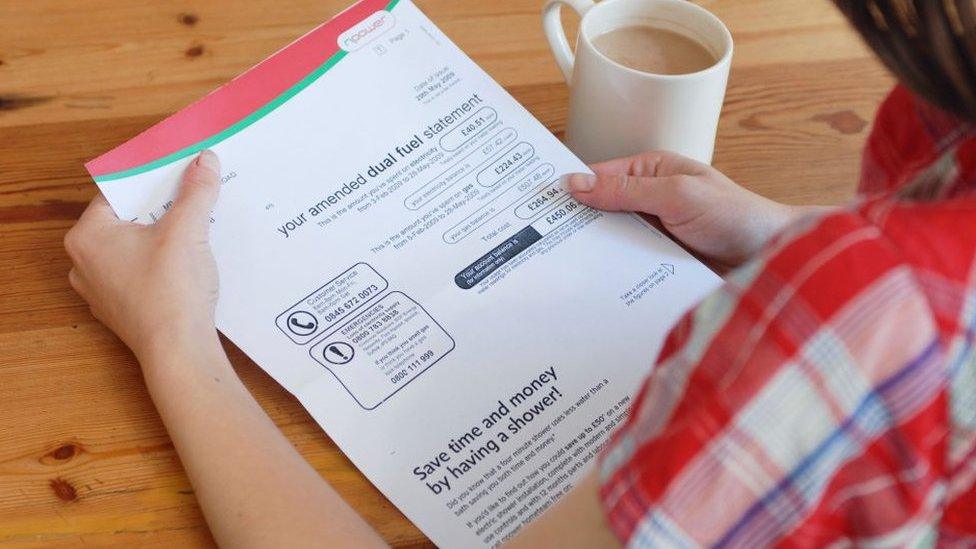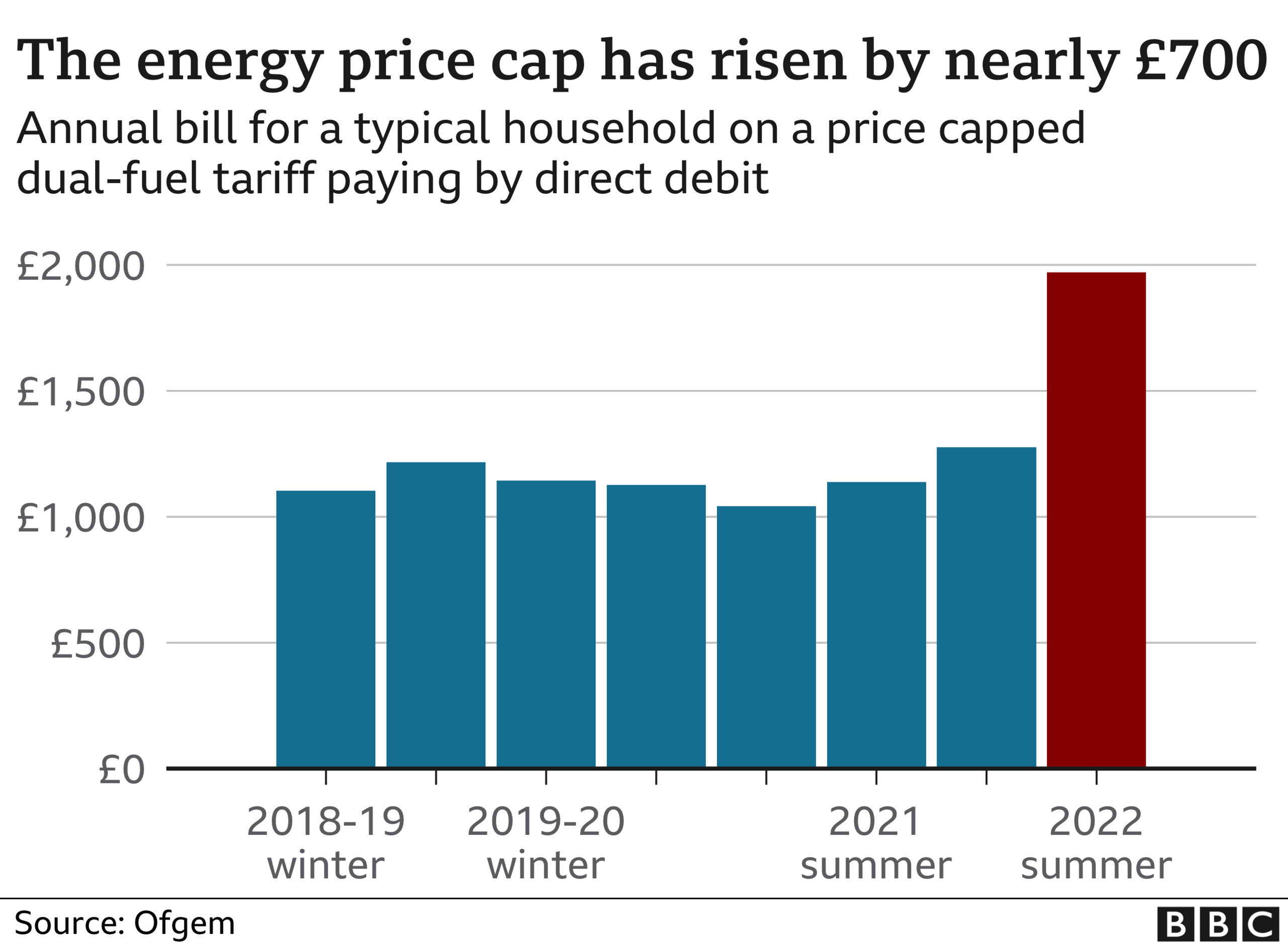Energy suppliers warned over direct debit hikes
- Published

The energy regulator has said it has seen "troubling signs" that suppliers may have been increasing direct debit payments by "more than is necessary".
Ofgem said it was concerned that firms may be directing customers to energy deals that aren't in their "best interest".
It comes as households face significant increases in their energy bills.
On 1 April, yearly bills increased by an average of £693 for about 18 million households on standard tariffs.
And some 4.5 million prepayment customers saw an average increase of £708 - from £1,309 to £2,017.
Energy experts have encouraged customers to take and submit meter readings as the changes take effect, in an attempt to save cash.
Jonathan Brearley, chief executive of Ofgem, said the regulator had received information from consumer groups and the public about "bad practices" by some suppliers.
"We are also seeing troubling signs that some companies are reacting to these changes by allowing levels of customer service to deteriorate," he wrote in a blog post on Ofgem's website. , external
He added that they were also concerned about "the way some vulnerable customers are being treated when they fall into difficulties".
'Substantial' fines
Mr Brearly said Ofgem planned a series of reviews and "stricter supervision" of energy firms over its concerns that the suppliers may have been increasing direct debit payments by "more than is necessary", or directing customers to tariffs that "may not be in their best interest".
The regulator said it would issue "substantial fines" to firms found failing to comply with the measures.
Energy bills have increased because the energy price cap - the maximum price suppliers in England, Wales and Scotland can charge households - is being raised.
Energy firms have been able to increase bills by 54% following the introduction of the new cap on 1 April.
The price cap is reviewed every six months, and prices are expected to rise yet again in October.
A report by the bank Investec has warned bills could reach £3,000 a year.
Experts encouraged people without smart meters to submit gas and electricity meter readings on 31 March to ensure that they had logged the use of less expensive rates for energy before the changes took place on 1 April.
If you can't submit your readings, you should take a photo with the meter reading and meter serial number both clearly visible to submit at a later date.
It's worth noting too that logging an extra reading to give a more accurate picture of your energy usage could see your bills go up if it is more than your company had forecast.
What help is available?
People struggling to afford energy bills can seek advice from charities such as Citizens Advice, external, Turn2Us, external or the StepChange, external debt charity.
All the big energy firms also have hardship funds that can offer assistance if someone is struggling to pay.
The government has said it will offer extra help worth a total of £350 via the council tax system in England too.
The warm house discount scheme, external will also be expanded to cover three million households. It offers low income households a one-off annual discount on their electricity bill, and was worth £140 in 2021-22.

In October customers in England, Scotland and Wales will receive a £200 rebate on their energy bills. They will have to repay this at £40 a year for five years, starting in April 2023.
The Northern Ireland energy market is separate, but the government has said £150m would be available to support households.
Related topics
- Published1 April 2022

- Published1 April 2022
